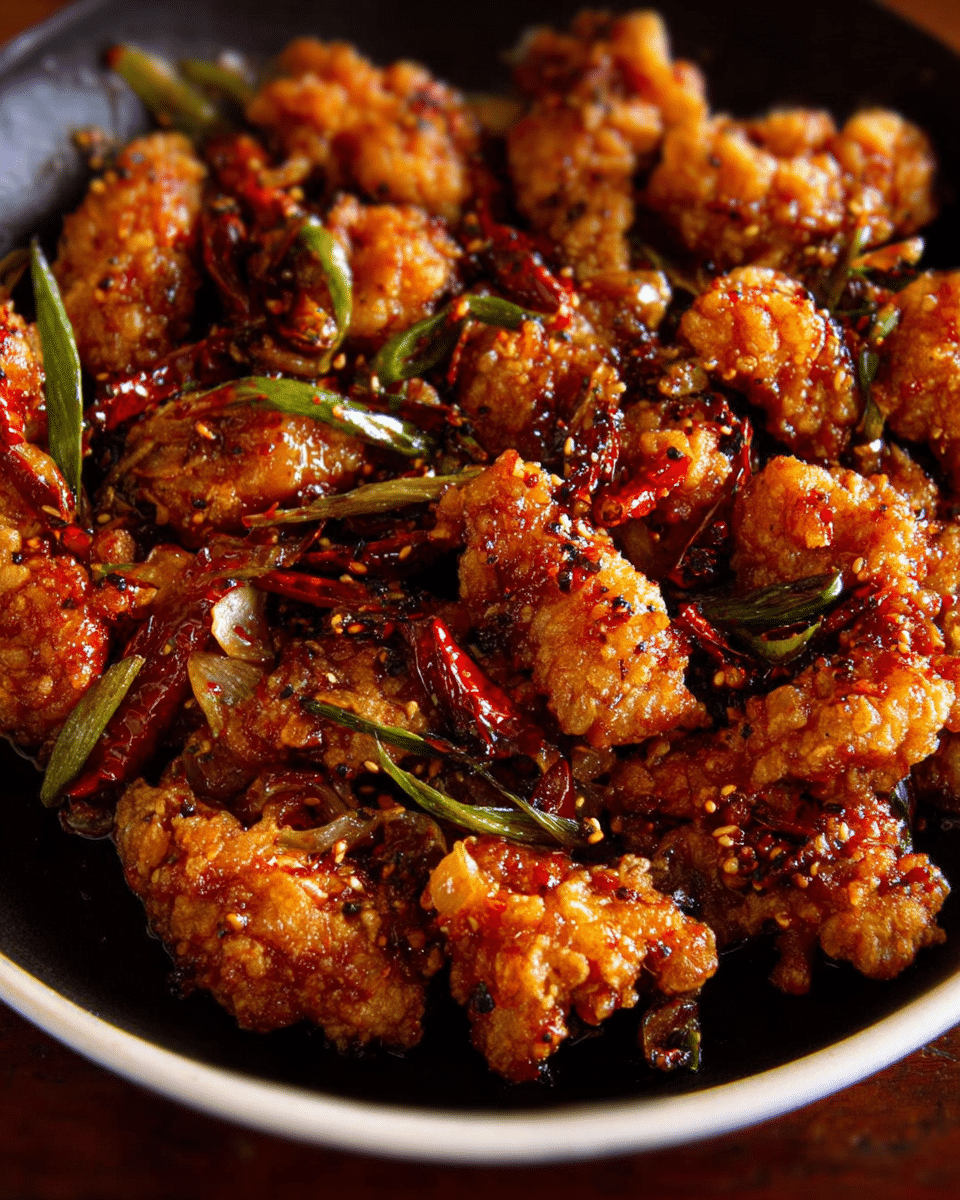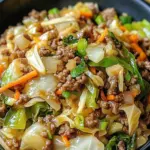The History Behind Kkanpunggi
Kkanpunggi’s origins trace back to Korean street food culture. In Korea, fried chicken has become a staple food, with restaurants specializing in fried chicken opening all around the country. What sets Kkanpunggi apart from other types of fried chicken is its special sauce—a combination of spicy, sweet, and tangy flavors that coat the chicken wings perfectly. The use of Gochujang (Korean chili paste) in the sauce gives the dish its signature fiery kick, while honey and ketchup offer a balance of sweetness and richness.
The popularity of fried chicken in Korea has been steadily growing, and Kkanpunggi is now enjoyed by people of all ages, both in Korea and around the world. It’s often served with a side of pickled radishes to balance the spiciness, making it a perfect addition to a hearty meal.
What Makes Kkanpunggi Special?
The true beauty of Kkanpunggi lies in the balance of flavors. The chicken is fried to perfection—crispy on the outside and tender on the inside, while the sauce envelops each piece with a mix of heat, sweetness, and umami. The inclusion of sesame oil, garlic, and ginger in the sauce adds depth, while the sesame seeds and chopped green onions give the dish an extra crunch and burst of freshness. This combination of elements makes Kkanpunggi not just a fried chicken dish, but a complex and satisfying meal.
The preparation of Kkanpunggi is also noteworthy. Unlike many other fried chicken dishes that rely on a simple batter or breading, Kkanpunggi uses potato starch or cornstarch, which gives the chicken a unique crispiness that’s different from the traditional flour-based coating. The sauce is also cooked separately, ensuring that each piece of chicken gets an even coating without making it soggy.
Kkanpunggi and Korean Cuisine
Korean cuisine is known for its bold flavors, and Kkanpunggi embodies the essence of Korean cooking with its use of key ingredients like Gochujang, sesame oil, and garlic. These ingredients are staples in many Korean dishes and contribute to the distinct flavors that define Korean food. Kkanpunggi also highlights the importance of texture in Korean cuisine. The contrast between the crispy chicken and the sticky, flavorful sauce is a hallmark of the dish, providing an experience that’s both texturally and flavorfully satisfying.
In addition to Kkanpunggi, Korean fried chicken has a variety of other styles and variations. One such variation is “Yangnyeom chicken,” which is a sweet and spicy chicken similar to Kkanpunggi but with a slightly different flavor profile. There’s also “Huraideu-chikin,” a non-sauced, crispy version of fried chicken that’s usually paired with a dipping sauce. Kkanpunggi, however, stands out because of its rich and flavorful sauce that clings to the chicken, making each bite an explosion of taste.
How to Make Perfect Kkanpunggi at Home
Making Kkanpunggi at home is easier than you might think, and with a few simple steps, you can recreate this iconic Korean dish in your own kitchen. One of the keys to success is frying the chicken at the right temperature. The oil should be hot enough to create a crispy outer layer but not so hot that the chicken burns. The potato starch or cornstarch coating will help achieve that perfect crispiness, so be sure to coat the chicken evenly before frying.
Another important aspect of making Kkanpunggi is getting the sauce just right. The Gochujang provides the necessary heat, but you can adjust the amount to suit your spice tolerance. The sweetness comes from the honey and ketchup, and it’s essential to balance the flavors to create a sauce that complements the chicken without overpowering it. A slight touch of sesame oil adds a deep, nutty flavor, making the sauce rich and savory.
Variations and Customizations
While the traditional recipe for Kkanpunggi is beloved by many, there’s always room for customization to suit your personal preferences. For instance, you can experiment with different types of chicken pieces—though wings are commonly used, you can also try drumsticks or boneless chicken bites for a different twist. If you’re looking for a lower-calorie alternative, you can bake the chicken instead of frying it, though the crispy texture may not be as pronounced.
For those who like an extra crunch, you can add some chopped peanuts or cashews to the sauce to give it an added texture. Some people also like to incorporate vegetables into the dish, such as fried onions or bell peppers, for a colorful and nutritious addition.
Serving Suggestions for Kkanpunggi
Kkanpunggi is often served with a side of pickled radishes, which help balance out the spiciness of the chicken with their tangy flavor. It also pairs well with steamed rice, which helps mellow out the bold flavors of the dish. A fresh salad with a light vinaigrette can complement the richness of the chicken, providing a refreshing contrast.
Kkanpunggi is a great dish to serve at parties or gatherings, as it can be made in large batches and easily shared with friends and family. It’s also perfect for enjoying on a cozy evening when you’re craving something flavorful and satisfying. No matter the occasion, Kkanpunggi is sure to impress anyone who takes a bite.
Conclusion: Why Kkanpunggi is a Must-Try
Kkanpunggi, with its irresistible combination of crispy chicken and spicy-sweet sauce, is a dish that’s sure to capture your heart. Whether you’re a fan of Korean cuisine or a newcomer to the world of spicy fried chicken, this dish offers something for everyone. Its balance of textures and flavors makes it a standout in Korean food, and it’s a dish that’s both satisfying and comforting.
The beauty of Kkanpunggi lies in its versatility. It’s easy to make at home, and with a few tweaks, you can customize it to fit your tastes. Whether you enjoy it as a standalone meal or paired with sides like pickled radishes and rice, Kkanpunggi is a dish that will leave you craving more. So the next time you’re looking for a bold, flavorful dish that’s sure to impress, look no further than this delicious Korean classic.






